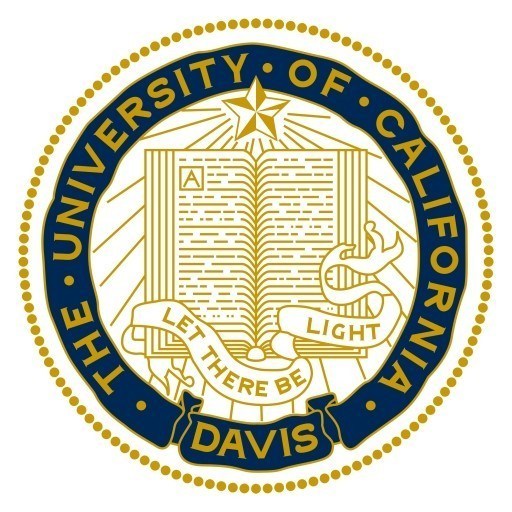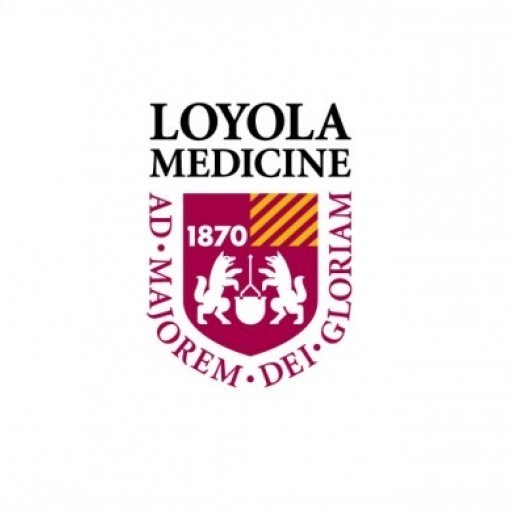Photos of university / #ucdavis
The Communication program at the University of California offers students a comprehensive exploration of human communication processes across various contexts and media. Designed to provide a solid theoretical foundation combined with practical application, this program prepares students to analyze and interpret communication phenomena, develop effective communication skills, and understand the social, cultural, and technological factors that influence communication in contemporary society. Students will examine topics such as interpersonal communication, mass media, organizational communication, intercultural exchange, and emerging digital communication technologies. Through a combination of rigorous coursework, research opportunities, and hands-on projects, the program encourages critical thinking and fosters competencies valuable in diverse professional fields including media, public relations, corporate communication, journalism, and academia. Emphasizing both theoretical understanding and practical skills, students will engage with current issues such as media ethics, communication policy, and the impact of social media on public discourse. The program also promotes experiential learning through internships, seminars, and collaborative projects, enabling students to apply their knowledge in real-world settings. Graduates of the Communication program will be equipped to pursue advanced studies or enter the workforce as effective communicators, analysts, and strategists. The program's interdisciplinary approach draws from sociology, psychology, political science, and information technology, ensuring a well-rounded education that aligns with the dynamic nature of communication in the 21st century. With dedicated faculty members who are experts in their fields, students benefit from mentorship and innovative research opportunities. The campus provides state-of-the-art facilities, including media labs and digital studios, to support student endeavors. Whether aiming to shape media narratives, foster community engagement, or analyze communication trends, students will find a rigorous and engaging academic environment here that prepares them for meaningful careers and lifelong learning in the diverse world of communication.
Thesis Option (Plan 1)
Because most of our master's students obtain the M.A. on their way to earning a Ph.D. degree, they are expected to opt for the thesis option to obtain valuable research experience.
Students who select the master's degree thesis option (Plan 1) must complete 32 units of coursework (usually eight courses) and prepare a thesis, which is a written report of original scholarship that makes an important contribution to knowledge about communication.
A thesis is a written report of an empirical research project that explores an important issue in communication. Theses within the program generally are expected to be quantitative, data-based and theory driven. Data may be generated by the student using one or more of the methods of the social sciences: survey research, experimental methods, content analysis, secondary data analysis and computational methods.
The thesis often is based on research that the student's major professor and the student conduct collaboratively, with the student primarily responsible for executing the study and writing the thesis report.
Thesis research begins with a thesis proposal, which the student must submit to the M.A. committee for approval before initiating data collection. For most projects, the thesis proposal will include the following parts:
• Review of relevant research, including a theoretical rationale for the proposed study
• Hypotheses or research questions
• A description of the methods and instruments to be employed, and the data analysis strategy
• A description of the statistical methods to be used to test the hypotheses
• A References section
Plan 1 students are encouraged to think about their topic early in their program. Keep in mind as well that thesis research involving human subjects will require submission of a human subjects review application. Approval by the campus human subjects review committee can take several weeks to obtain.
Non-thesis Option (Plan 2)
The non-thesis option is often – although certainly not always – preferred for students who have a change of heart about doctoral studies.
Students who choose the master's degree non-thesis option (Plan 2) must complete 40 units of coursework (typically 10 courses) and pass a comprehensive examination that includes written and oral components.
THE COMPREHENSIVE EXAM
Plan 2 students are required to pass a comprehensive examination. The student's M.A. adviser and the M.A. committee have responsibility for preparing and evaluating a student's comprehensive examination. At the discretion of the adviser, questions may be solicited and evaluated by other members of the M.A. Program faculty. Because students' programs of study differ, so too will the scope and nature of their respective comprehensive examinations.
Planning meeting
Students on Plan 2 should meet with their M.A. committees in the spring quarter of their first year of study to negotiate the nature of their examination and develop a study plan for preparation. Students may enroll in directed study (CMN 299) throughout the duration of their studies to enable ample preparation time.
Comprehensive examinations in the program consist of two components: a written examination (essay) and an oral examination. The format for the written examination can include a "sit down" essay examination, a "take home" essay assignment, or some combination of each format. The student's academic adviser and the M.A. committee, in consultation with the student, will determine the most appropriate format.
Written examination
At minimum, every student's written examination will cover the core theories and methodologies that define the subdisciplines of social interaction and mediated communication. These theories and methodologies are covered in the core classes and other coursework. The examinations will go beyond the scope of these courses to examine topics that any "master" of communication should reasonably be expected to know. Students surely will be tested, for example, on current trends and controversies in the field. These examinations often ask the student to integrate issues covered across courses, and to apply theories and principles to new situations. Each examination will also concentrate on the student's primary interest area.
Evaluation of the written component of the examination will be the responsibility of the student's M.A. adviser and the M.A. committee. All written components of the examination must be acceptable to the student's M.A. committee, which has the option of requiring a rewrite of unacceptable work. Only one revision of written work is permitted. If the rewrites are judged to be unacceptable, the student will be dismissed from the program.
Oral examination
The oral examination has the format of a cross-examination, in which students are asked to defend or expand upon their written examination answers. At the conclusion of the cross-examination, the student will be asked to leave the room. The M.A. committee will then confer and make a determination of whether the student has passed or failed the oral examination.
After a decision has been made, the student will be called back into the room, and the M.A. adviser will tell the student what the committee determined. At the sole discretion of the student's M.A. committee, a second oral examination may be scheduled if a student fails on the first attempt. If the student's performance is unacceptable for a second time, the student will be dismissed from the program.
Deadlines
The written component of the comprehensive examination must be administered no later than the last weekday of the month of April of the student's second year of study. Oral examinations must be scheduled no later than the last weekday of the month of May of the student's second year of study.
Requirements
- Applicants MUST apply online.
- The application fee is $105 for the domestic application and $125 for the international. The fee may be paid by credit card or e-check. The fee must be paid before the application will be considered as complete, and the fee must be paid for each application submitted.
- UC Davis requires academic records from each college-level institution you have attended. You will be instructed to upload scanned copies of your transcripts after you have submitted your online application. For more details visit https://gradstudies.ucdavis.edu/submit-transcripts.
- Applicants must submit the results of the Graduate Record Examination (GRE) for the verbal, quantitative and analytical portions of the exam. The UC Davis Institution Code for both the GRE and the TOEFL is 4834. The departmental code for TOEFL is 83, and for GRE it is 4599.
- Letters of Recommendation must be submitted electronically through the online application. Please do not have recommenders send letters in hard copy, but rather to submit all recommendations online once the online service is available.
- UC Davis requires academic records from each college-level institution you have attended. You will be instructed to upload scanned copies of your transcripts after you have submitted your online application.
- Applicants must upload required curriculum vitae, resume and/or writing sample via the online application website.
The University of California offers a comprehensive funding framework for students enrolled in Communication programs across its various campuses. Undergraduate students benefit from a variety of financial aid options, including federal and state grants, scholarships, work-study opportunities, and loans. The Free Application for Federal Student Aid (FAFSA) is the primary tool for accessing federal grants such as the Pell Grant, which provides need-based support. Additionally, many campuses offer their own scholarships based on academic achievement, leadership, or specific demographic criteria, which do not require repayment.
Graduate students in Communication can access departmental fellowships, research assistantships, and teaching assistantships, which often provide tuition remission combined with stipends to support living expenses. The university also encourages students to apply for external scholarships and fellowships provided by private foundations, industry partners, and government agencies, which can significantly offset educational costs. Financial planning at UC begins early, with resources available to help students understand their financial options and develop personalized funding strategies.
Moreover, the university’s financial aid offices provide counseling and workshops to guide students through the application process, budget management, and other aspects of financial literacy. For international students pursuing Communication degrees, there are specific scholarships and assistantship opportunities, although funding options may be more limited compared to domestic students. The university also emphasizes transparency and accessibility in its financial support programs, ensuring students are aware of all available resources. Overall, UC’s financing studies aim to make Communication education attainable and affordable, fostering an inclusive academic environment where students can focus on their scholarly and professional development without undue financial burden.
The University of California offers a comprehensive program in Communication designed to provide students with a thorough understanding of human communication processes. The program emphasizes the development of analytical, critical thinking, and research skills through a diverse curriculum that covers various aspects of communication, including interpersonal, intercultural, organizational, and mass communication. Students have the opportunity to study the theoretical foundations of communication theories and their practical applications across different contexts.
The program typically includes coursework in communication theories, media studies, rhetoric, public speaking, and research methods. Students are encouraged to engage in experiential learning, such as internships or projects that allow for real-world application of communication concepts. The curriculum aims to prepare graduates for careers in fields such as media, public relations, advertising, corporate communication, journalism, and community outreach.
Throughout their studies, students develop effective communication skills, including written, verbal, and digital communication, which are essential across numerous professional settings. The program often features workshops, seminars, and collaborative projects designed to enhance students’ ability to analyze media content, craft persuasive messages, and understand diverse cultural perspectives.
In addition to coursework, many Communication programs at the University of California promote interdisciplinary approaches, integrating insights from psychology, sociology, political science, and information technology. Faculty members are typically experts in their fields, contributing to cutting-edge research that informs classroom learning.
Graduates of the program are equipped to pursue advanced degrees or immediate entry into the workforce, often holding positions in media organizations, government agencies, non-profits, or private corporations. The program aims to foster critical awareness of the role of communication in social and political contexts, enabling students to become effective communicators and responsible global citizens.
Overall, the Communication program at the University of California offers a rigorous and versatile education that prepares students for the dynamic and evolving landscape of communication industries worldwide, emphasizing both theoretical understanding and practical skills necessary for success.






